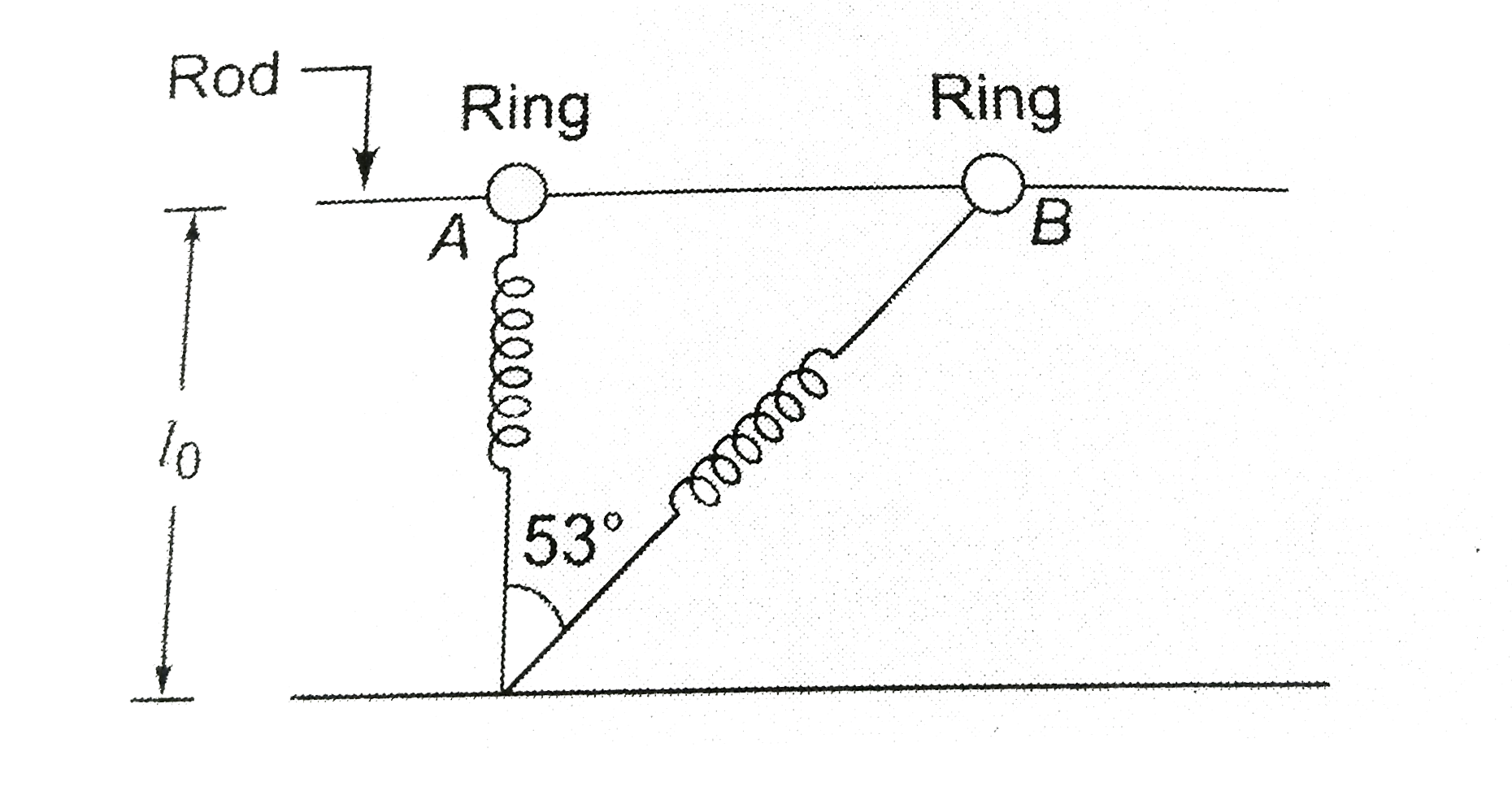One end of a massless spring of spring constant 100Nm−1 and natural length 0.5 m is fixed and the other end is connected to a particle of mass 0.5 kg lying on a frictionless horizontal table. If the mass rotates at an angular velocity of 2rads−1 , the elongation of the spring is approximately.
4cm
3cm
1cm
2cm
The correct Answer is:C
Topper's Solved these Questions
- RIVISION EXERCISEBOOK - AAKASH SERIESCHAPTER - RIVISION EXERCISEEXERCISE - MOTION IN A PLANE (LAMNI.S THEOREM)
6 Videos
- RIVISION EXERCISEBOOK - AAKASH SERIESCHAPTER - RIVISION EXERCISEEXERCISE - FRICTION (INCLINED PLANE)
30 Videos
- RAY OPTICS BOOK - AAKASH SERIESCHAPTER - RAY OPTICS EXERCISE - EXERCISE III
64 Videos
- ROTATIONAL DYNAMICS BOOK - AAKASH SERIESCHAPTER - ROTATIONAL DYNAMICS EXERCISE - PRACTICE SHEET (ADVANCED) Integer Type Questions
7 Videos
Similar Questions
One end of a massless spring of spring constant 100 N/m and natural length 0.5 m is fixed and the other end is connected to a particle of mass 0.5 kg lying on as frictionless horizontal table. The spring remains horizontal. If the mass is made to rotate at an angular velocity of 2 rad/s, find the elongation of the spring.
View SolutionOne end of a massless sprinf of spring constant 100 N/m and natural length 0.5 m is fixed and the other end is connected to a particle of mass 0.5 kg lying on as frictionless horizontla table. The spring remains horizontal. If the mass is made to rotate at an angular velocityof 2 rad/s, find the elongation of the spring.
View Solution
Knowledge Check
A particle of mass m is fixed to one end of a massless spring of spring constant k and natural length l0. The system is rotated about the other end of the spring with an angular velocity ω ub gravity-free space. The final length of spring is
Amω2l0kBmω2l0k−mω2Ckl0k−mω2Dmω2l0k+mω2A circular table of radius 0.5m has a smooth diametrical groove. A half of mass 90g is is placed inside the groove along with a spring constant 102Ncm−1 One end of the spring is tied to the table and the other end to the ball The ball is at a distance of .0.1m from the center when the table is at rest On rotating the table with a constant angular frequency of 102rads−1 the ball moves away from the center by a distance nearly equal to
A10−1mB10−2mC10−3mD2×10−1m
A spring of force constant 1200Nm−1 is mounted on a horizontal table and a mass of 3.0 kg of attached to the free and of the spring. The mass is made to rotate with an angular velocity of 10 rad/s. What is the elongation produced in the spring if its unstretched length is 60 cm ?
View SolutionA particle of mass m is fixed to one end of a massless spring of spring constant k and natural length l0. The system is rotated about the other end of the spring with an angular velocity ω ub gravity-free space. The final length of spring is
View SolutionA massive spring of mass m and length l is fixed at one end and the other end is given a velocity v such that speed of spring particles increases increases linearly. Find the kinetic energy of spring.

View SolutionA circular table of radius 0.5m has a smooth diametrical groove. A half of mass 90g is is placed inside the groove along with a spring constant 102Ncm−1 One end of the spring is tied to the table and the other end to the ball The ball is at a distance of .0.1m from the center when the table is at rest On rotating the table with a constant angular frequency of 102rads−1 the ball moves away from the center by a distance nearly equal to
View SolutionA massless spring of natural length of 0.5 m and spring constant 50 N/m has one end fixed and the other end attached to a mass of 250 g. The spring mass system is on a smooth floor. The mass is pulled until the length of the spring is 0.6 m and then released from rest. The kinetic energy of the mass when the length of the spring is 0.5 m is
View Solution
A ring of mass m is attached to a horizontal spring of spring constant k and natural length l0. The other end of the spring is fixed and the ring can slide on a horizontal rod as shown. Now the ring is shifted to position B and released Find the speed of the ring when the spring attains its natural length.
View Solution
